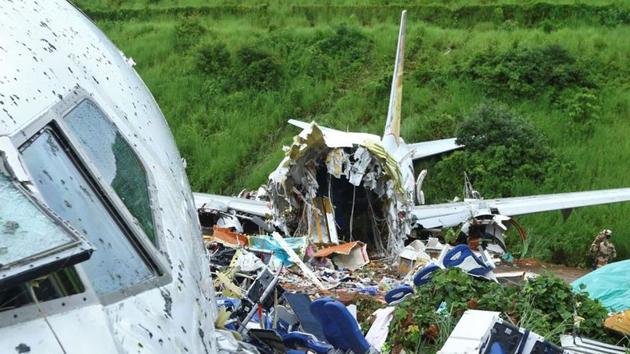After Kerala plane crash, experts stress need for pre-monsoon training
Mohan Ranganathan, aviation safety expert specialising on wet runways, said airlines complete the mandatory annual training for pilots only on paper.
As investigations into the Air India Express plane crash at Karipur airport in Kozhikode began on Saturday, aviation experts have raised questions on the status and implementation of annual refresher, called Approach and Landing Accident Reduction (ALAR), that pilots irrespective of seniority have to mandatorily undergo before the onset of monsoon every year.

ALAR, a theoretical exercise, is part of the syllabus, designed with a set of approach and landing briefing notes with an aim to help reduce the frequency and severity of approach and landing incidents and accidents. ALAR refresher is deemed to be important during monsoon on account of low visibility, wet runways and engine performance which play a critical role during landing.
Also read: All we know is that the touchdown was late, says DGCA chief
Mohan Ranganathan, aviation safety expert specialising on wet runways, said airlines complete the mandatory annual training for pilots only on paper. “Many pilots skip the mandatory monsoon training, and it has just become an on-paper training for airlines, especially Air India. Hence, the approach-and-landing accidents training is not attended by various pilots. And DGCA (Directorate General of Civil Aviation) has just been turning a blind eye to the non-compliance,” said Ranganathan, a former instructor pilot of Boeing 737.
A senior Air India pilot, who is not authorised to talk to the media, said, “The airline has been completing the training in a haphazard manner. DGCA is aware of it. For instance, a pilot who last completed his set of trainings in September is made to undergo ALAR refresher a year later in September, and not before the monsoons which defeats the purpose of the ALAR training.”
Air India officials did not respond to calls or texts.
Also read: Civilians rushed to save lives after plane crash, honoured with special gesture
“An overhaul of the whole system is needed instead of a reactive change. It’s a systemic issue with bureaucrats at the helm of technical organisations such as DGCA. After the accident, the most they will do is add a test to the ALAR programme which doesn’t serve the purpose,” said a pilot from one of the leading airlines.
Another pilot, requesting anonymity, said the training is conducted to not only fly during monsoons but also to deal with worldwide airports and their extreme weather conditions like snowfall.
Also read: Ex-air marshal, who probed Mangaluru accident, lists reasons for Kozhikode crash
However, a former DGCA official said, “ALAR is part of the syllabus, which is in their training manual, and not specific training. There is a checklist that they have to tick off once pilots complete the refresher. So if they have tick-marked, we assume they have completed it.”
Stay updated with all the Breaking News and Latest News from Mumbai. Click here for comprehensive coverage of top Cities including Bengaluru, Delhi, Hyderabad, and more across India along with Stay informed on the latest happenings in World News.
Stay updated with all the Breaking News and Latest News from Mumbai. Click here for comprehensive coverage of top Cities including Bengaluru, Delhi, Hyderabad, and more across India along with Stay informed on the latest happenings in World News.






